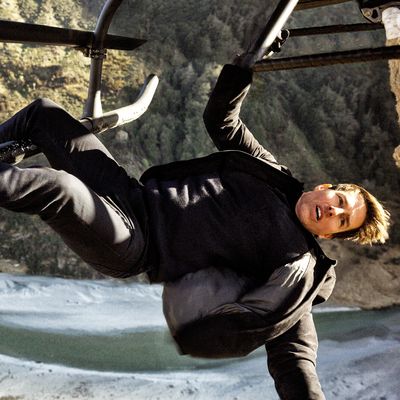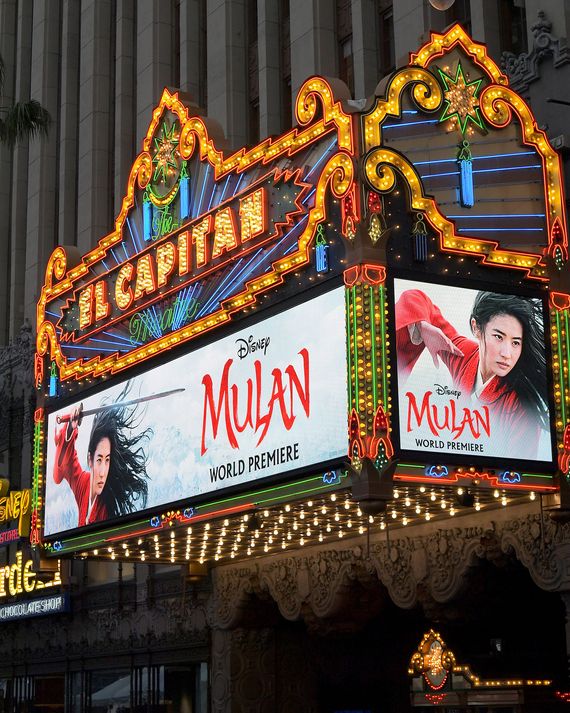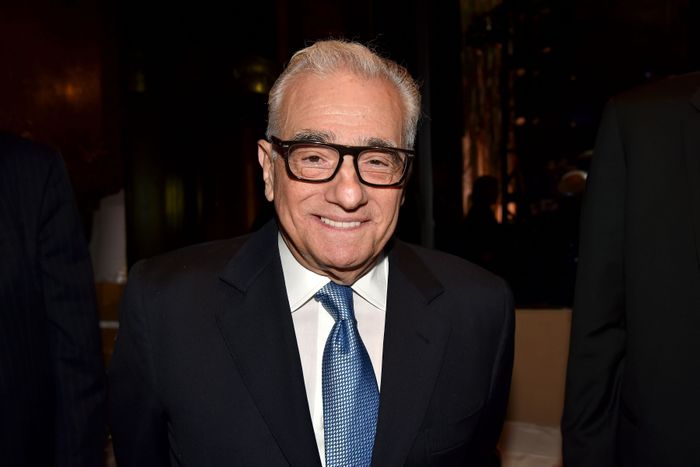
Inside Hollywood’s corridors of power, the industry shutdown due to COVID-19 has come to be known by various nicknames. The studio executives and talent agents responsible for keeping the business part of showbiz beating ever forward against the tide have referred to the worldwide pandemic as “nuclear winter.” “Doomsday,” even.
“We have to write off 2020. It’s already the year that didn’t happen,” says one top agent at one of the town’s powerhouse firms who, like everyone reached by Vulture for this story, requested anonymity due to sensitivities surrounding ongoing business endeavors. “We’re not going to make any money because there are no revenues with TV and movies not getting made. Anyone who says that everything is not totally fucked is lying. Everything has changed in what we do.”
For the agencies, March going into April now stands as arguably the bleakest span of weeks on record in terms of ruinous financials, lost jobs, docked income, and a more nebulous diminishment in the kind of work that keeps the movie-release calendar full. The received wisdom: When the deal-makers go dark, the soundstage lights in Tinseltown follow. With stay-at-home and anti-gathering measures expected (by internal estimates) to remain in place in and around Hollywood until at least June 1, a wide swath of present and former agents, entertainment lawyers, and talent managers contacted by Vulture have been pondering what this all means for the future of filmmaking and movie distribution. They envision outcomes that cohere into three distinct groups.
The first, and most decidedly optimistic, scenario sees the first half of 2020 as a temporary apocalypse. Predicated on a rapid restoration of normalcy that few within the scientific community foresee, by this imagining, the 120,000 Hollywood craftspeople, technicians, and artisans estimated to have already lost their jobs due to the coronavirus would promptly regain steady employment once stay-at-home measures relent and insured projects were permitted to pick back up. Hollywood would be back online by late summer, and the release hiccups caused by COVID-19 — the Mission: Impossible 7 production halt in Italy in February, or the March suspension of first-unit filming on Marvel’s Shang-Chi in Australia — will be followed by business more or less as usual. Movies like the next untitled Indiana Jones installment or Thor: Love and Thunder will move from 2021 to 2022, but Christopher Nolan’s Tenet and Wes Anderson’s The French Dispatch will still see 2020 theatrical releases.
“Look, eventually, when the world comes back around, people will want to see movies and television and things, and I’m connected to clients who do that,” says an agent. “I know people who are like, ‘September or July we’ll be back to normal.’ We feel a bit more optimistic than the average person does.”
The second potential outcome is more of a mixed bag. Several presumptive blockbusters now face mounting uncertainty as their principal photography gets kicked indefinitely down the calendar, while other brand-name summer releases — Top Gun: Maverick and F9 among them — are destined to flood into an already crowded fall 2020 and spring 2021 release corridor, doomed to compete in ways unforeseen at the box office. Moreover, a sudden reopening of the entertainment industry in June feels farther fetched by the day. And when Hollywood does reopen, the industry will experience inevitable scheduling conflicts as actors, directors, and location scouts scramble to make their delayed movies first. They’ll likely be hampered by other obstacles: yet-to-be-determined protocols for preventing the spread of illnesses on crowded shoots, doubt as to whether insurance bonding will cover all cases of coronavirus-related production delays, and general budgeting disarray as studios juggle more releases than they planned. Splashy projects currently on hold — such as Baz Luhrmann’s untitled Elvis movie, Jurassic World: Dominion, and the DC Extended Universe reboot The Batman — could end up in turnaround as a result of the chaos. To put it simply: The disruption from just one summer of no moviegoing or moviemaking will have lasting consequences on the 2021 and 2022 release calendar.
A third, albeit still remote, scenario envisions a graver future — namely, a move away from the theatrical release calendar entirely. As the spread of the coronavirus throws traditional studios into disarray and back-lot executives fret as to whether audiences will return to the multiplex in a post-COVID-19 world at all, the Amazons and Netflixes appear to be in a better position to green-light major movie projects at a competitive scale and volume. To wit: Martin Scorsese’s reported negotiations with Netflix and Apple+ this week after his longtime studio home Paramount balked at the rising $200 million price tag for the Oscar-winning director’s new Leonardo DiCaprio–starring project Killers of the Flower Moon.
If we do see a drastic attrition in theatrical moviegoing post-coronavirus after years of already steep declines, we could experience not only a disordered theatrical release calendar in 2021 and 2022, but a near-nonexistent one in the years to come. “Evolutionary change happened because of big natural events. This is one of those things,” one former agent says of audiences’ growing comfort with watching films at home.
How Did We Get Here?
It’s easy enough to forget that prior to the Ides of March, there was little indication that Hollywood was headed toward financial free fall. The North American box office garnered $886.1 million for the month of January, according to Comscore, up by 11 percent from the same period in 2019. But as China’s viral infection rate began to skyrocket, the country shuttered tens of thousands of movie theaters, resulting in indefinite postponement for a number of Hollywood event movies like Mulan (and early online releases for others). By the middle of last month, when Stateside government mandates limited gatherings to groups of fewer than ten people, North America’s biggest theater chains shut their doors to business. The entertainment industry locked up its sets, while both employed or indefinitely unemployed laborers sheltered in place. Ongoing productions ceased work. Soon, shifts in the agency world would put future projects on hold, too.
On March 20, Paradigm became the agenting world’s first and biggest coronavirus casualty, announcing the “temporary” layoff of more than 100 of its 700 agency employees. United Talent Agency quickly followed suit, with co-presidents Jay Sures, Jeremy Zimmer, and David Kramer forgoing any compensation through year’s end and slashing pay throughout the rest of the company. On March 27, APA similarly informed its branch offices of impending pay cuts with possible furloughs and suspensions. The Verve literary agency reportedly began exploring strategic salary cuts (with its seven partners taking the biggest hit) in a bid to avoid layoffs. On April 2, the Gersh Agency terminated at least one senior agent (and his assistant) invoking a force majeure contract clause that cites the COVID-19 epidemic.
While coronavirus curve-flattening measures have caused a snowballing number of productions and live events to be delayed or canceled, the monolithic WME agency has suffered a kind of triple indignity. On March 20, 180 senior agency partners were informed that the company would indefinitely postpone a long-anticipated multimillion-dollar buyback of their equity shares. Then, via an ominous all-staff memo, rank-and-file WME agents were told they could expect “additional measures” that would affect pay and employment up and down the 7,500-person operation. (Endeavor chief executive Ari Emanuel and chairman Patrick Whitesell announced they would not take salaries for the rest of 2020.) Finally, WME’s parent company Endeavor Holdings Group — which oversees the Ultimate Fighting Championship, the Miss Universe Organization, and Professional Bull Riders, Inc. — acknowledged being forced to trim as many as 250 employees from its 7,000-person staff roster through the end of April.
With fewer people on staff and a smaller budget for remaining personnel, agencies have moved away from the typical bluster and luster that has come to be associated with movie deal-making in the post-Ovitz era. Signature displays of agent largesse — Ari Emanuel’s rumored purchase of a Bentley for client Mark Wahlberg — have given way to new austerity measures. Expense accounts at most of the major talent firms have been temporarily frozen. “Floating assistants” have been laid off. For some agents — WME’s Richard Weitz notable among them — Zoom has become an indispensable tool in the lean times. Since the outbreak’s onset, Weitz, whose clients include Tina Fey, LL Cool J, and Seth MacFarlane, has been throwing rollicking “cocktail parties” on the conferencing app. The parties have attracted as many as 500 attendees (media titans like Disney’s Robert Iger and Quibi’s Jeffrey Katzenberg, movie producers, and fellow agents among them). According to one guest, ’80s pop icon Boy George performed the Culture Club hit “Karma Chameleon” at one of Weitz’s recent Zoom gatherings, John Mayer ran through “Your Body Is a Wonderland” at another, and Josh Groban covered “America” by Simon & Garfunkel.
Of course, it’s hardly enough. With rising unemployment within the agenting ranks, and fewer people to strike deals between the powers that be, the possibility of a “This is fine” return to showbiz as usual grows ever more remote.
“I don’t think any of us could have imagined we’d be in the place we are today,” Emanuel said in the WME memo.
Can the Theatrical Movies Survive?
The white-collar labor of ironing out agreements for actors, writers, and directors hasn’t entirely ground to a halt. Deals, such as the sale of Olivia Wilde’s gymnastics drama Perfect to Searchlight and STX’s “high seven-figure multi-territory buy” for Scott Cooper’s psychological horror project A Head Full of Ghosts in late March are still going through. But agents say many of those recently announced deals were in planning stages long before the pandemic hit, and negotiations for new agreements are slowing to a trickle.
That’s not to say new projects aren’t in the works. Screenwriters are, by several agents’ accounts, “the only people who can get paid these days.” Younger writers especially have been generally more open to Zoom meetings and FaceTime conversations concerning movies in early stages. Some older directors and producers, however, are showing a certain aversion to such digital discussions. “The older you are, the harder it is to understand,” an agent tells Vulture. “For 50-, 60-year-old directors taking a general or pitch meeting, there isn’t the comfort level. Certain clients won’t do it. Some people are open for business and some people are not.”
Further, at a time when audiences are still barred from theatrical moviegoing for the foreseeable future, anecdotal evidence suggests that movie deal-making is shifting away from the major studios while continuing at least somewhat apace at digital and streaming giants. “Yesterday, one of our clients renewed his deal with Apple. And Amazon is continuing to do things,” another agent says. “We just did a YouTube deal. So, yeah, there are deals being done. But I’m not seeing updates on, like, Paramount movies.”
“People are not saying, ‘Hey, I want to make big overall studio deals right now,” clarified the first agent quoted in this story, shortly before the stock of Hollywood’s most dominant media company, Disney, came crashing to its lowest price since 2014.
Those flickers of life in the online arena are hardly an antidote to the wider COVID-born infirmity that has gripped the industry. An entertainment lawyer who works in tandem with agents from all of Hollywood’s biggest firms to close deals for a top-tier clientele of performers and creatives reflected on the industry agita. “If this goes on for another month, I don’t know how people are going to survive,” he says. “All actors have stopped working; there are no productions to go to. You can’t set foot on a movie set, so that takes directors out of the game. If a new TV show is delayed, it might not ever come back. We’re losing all revenue for the quarter. But really, this is years and years of work going out the window.”
The lawyer adds: “The worry is that things may never go back to normal.”
The Problem With Our Streaming Future
All these new, coronavirus-born deal-making realities serve to underscore widespread uncertainty regarding what a shift away from studio filmmaking toward a triumph of streaming would ultimately look like. Although the $159 million production budget for Netflix’s The Irishman established a new high-water mark for how much a service would be willing to spend on the kind of premium product aimed at attracting subscriptions, most streaming film deals are not nearly so rich. And such a paradigm shift would entail dwindling paydays across the cinematic ecosystem.
Among the presumptive casualties: back-end profits (if a streaming movie is already effectively “on cable,” there’s nowhere else for it to play), P&A spends (with physical film prints rendered obsolete, and the kind of billboard, newspaper, and TV-commercial advertising typically associated with a theatrical launch no longer justifying their costs), and epic filmmaking (films with budgets north of a quarter billion dollars like Avengers: Endgame or Avatar simply can’t hope to turn a profit on streaming).
Moreover, shedding further doubt that Hollywood’s production economy can bounce back by summer, even the smallest movie can require the concerted efforts of dozens of workers. A typical midrange film project can involve hundreds of specialized laborers massing on soundstages, eating from craft services, and performing their respective tasks well inside current social-distancing norms. And in California at a minimum, as within the entertainment industry at large, any lifting of lockdown protocols is unlikely to occur within the next few months. “People’s physical interactions, people’s spatial understandings, people’s risk-taking will come slowly,” Los Angeles mayor Eric Garcetti said in a recent interview.
Still, even with the global economy sliding into recession and American unemployment hitting the highest numbers since the Great Depression, many agents continue to dream the golden dream almost as an act of defiance. Sure, there’s a chance theaters might not be able to sell tickets beyond a summer devoid of blockbusters. And gatherings of more than ten people may remain outlawed within Hollywood’s Thirty Mile Zone (and its far-flung North American competitors in Georgia, New Mexico, Louisiana, and British Columbia). But it’s not like movie and TV fans are going to suddenly stop wanting to be entertained, as these agents’ reasoning goes.
“By our nature, agents are optimists,” says another agent at a top firm. “We’re always creating new opportunities that didn’t exist. We’re still looking for the new, better deal.”





